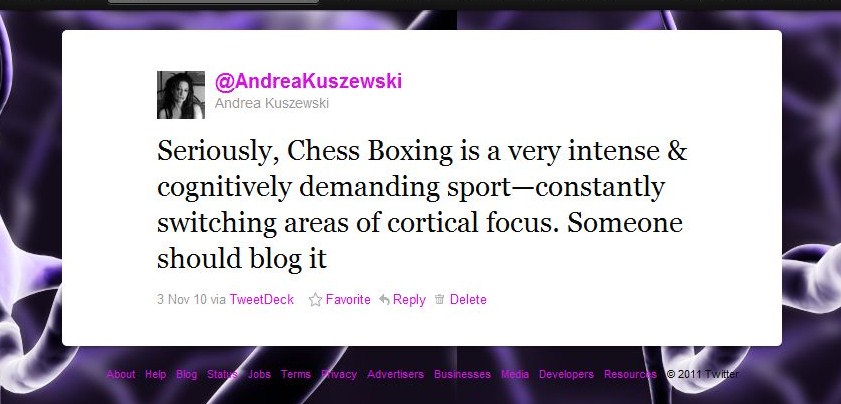 Chessboxing For Science
Chessboxing For ScienceWhat does chessboxing have to do with science? Let me tell you a little story...It all started...
 A New School Of Thought
A New School Of ThoughtHow do we learn best? It depends on the individual! In the video below, Salman Khan is demonstrating...
 Citizen Scientist 2.0
Citizen Scientist 2.0What does the future of science look like? About a year ago, I was asked this same question...
“The sweetest and most inoffensive path of life leads through the avenues of science and learning...






